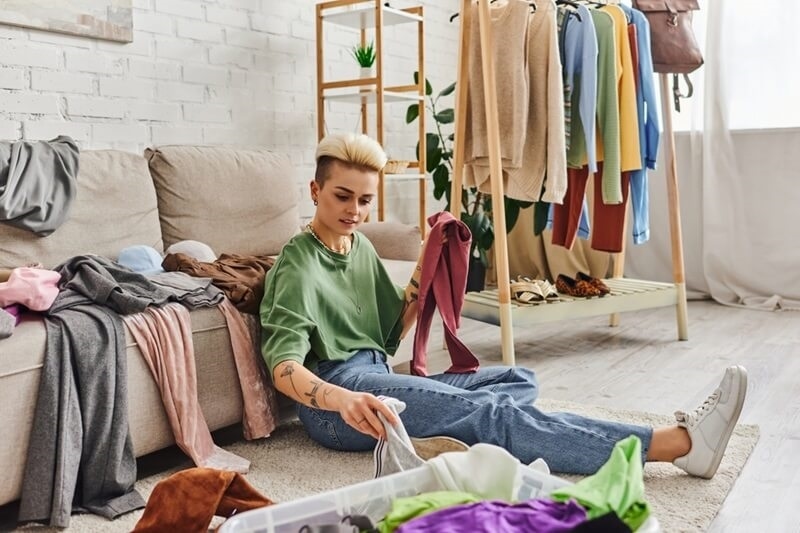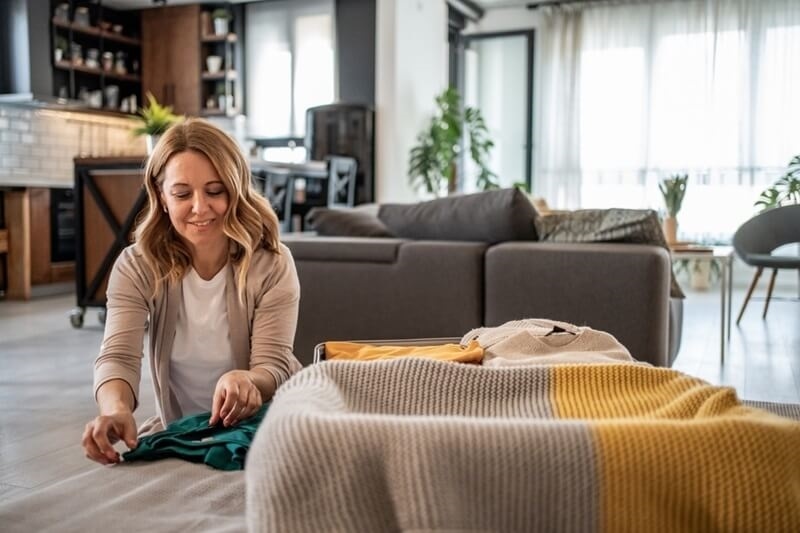
With the whirlwind pace of life in the new century, it's easy to understand how our houses and our minds can feel swamped by "stuff." Clutter not only fills up physical space—tarnished sweaters to piles of paper on the computer desk—but it also infuses mood, productivity, and even love. Enter mindful decluttering. It is not spring cleaning frenzies or whirlwind organizing sprees, but rather paying attention to what we have, where we are keeping it, and why we are holding on to it.
In consumer culture and busy American society, decluttering with intention offers a way to intentionally craft a simpler, more peaceful, and more meaningful way of life. This guide welcomes us to the realm of practical guidance on mindful decluttering, mindful organizing habits, minimalist family living, and a decluttered lifestyle that fosters balance and well-being.
Mindful decluttering is not carelessly tossing the old and jamming it into the garbage or grabbing a fistful of bags and leaving them at the charity. It is further about changing the way that we connect with our belongings. Instead of asking, "Do I need this?" mindful decluttering causes us to ask ourselves more introspectively:
Daily mindful decluttering keeps us out of fix-it and instead forms lasting habits. It's not so much about perfect and more about perfect enough. The goal is simply a home where everything has a reason, and we can have peace.

The United States is the most consumerist society in the world. Statistics reveal that the average American household has more than 300,000 items, and there are now more facilities for self-storage than there are restaurants of McDonald's. While abundance is a boon, it most frequently generates unobservable stress.
Clutter exacerbates anxiety, impedes focus, and devours time as we search for lost things. In work-from-home arrangements, school calendars, and family social planners, embracing minimalist family living through purposeful decluttering is no longer trendy but a matter of survival.
One of the most frequent mistakes is trying to do it all in one weekend. It sounds like a good idea to get your entire house spick and span in one weekend, but it leads to burnout. Instead, plan ahead:
This small yet steady practice helps build mindful organizing habits. Over time, you’ll notice your home shifting toward a calmer, more intentional environment without feeling rushed.
A simple yet effective strategy for decluttering with intention is sorting items into three categories:
Keep: Things that bring joy or serve a purpose.
Donate: Items in good condition that no longer align with your lifestyle.
Discard: Something unwanted, broken, or out-of-date.
This activity is particularly powerful for those dedicated to minimalist family living. Children, for instance, can practice giving away the toys they no longer play with. Adults can experience the emotional relief of letting go of the clothes or equipment they've been holding onto "just in case."
In the culture of consumption, it's easy to turn the tide of progress by bringing new things into the house. The "one-in, one-out" principle brings the absence of clutter. With each new purchase—a sweater, kitchen gadget, or even a keepsake—vow to let go of something comparable.
This practice creates not only a life of uncluttered existence but mindful consumption as well. You will avoid buying something and think through whether or not it is worth replacing the item you have.
Decluttering isn't just about physical items but also the emotional value of items. Instead of throwing things away, pause and reflect on their role in your life. For example:
By doing it this way, you turn decluttering into an appreciation ritual, and letting go is easier, so you don't look back. Gratitude is also the core of stress-free home routines, where whatever is left behind is by choice and loved.
Not all the rooms in your house impact your sanity. Start with high-impact spaces, not behind-the-scenes ones:
Getting these spaces organized upfront gives you immediate emotional gratification and preconditions the rest of the spaces. By getting more trafficked spaces to exude serenity and order, it becomes less challenging to have conscious organizing habits in the long run.
Conscious decluttering doesn't end with closets and pantries. Our digital existence has this same type of clutter as well. Think of your phone notifications, endless emails, or duplicate apps.
One of the things one can do to end up with a clean digital life is:
The small digital detox takes mental clutter off your shoulders, and you feel more concentrated and less distracted.
To parents, mindful decluttering is an educational process. Habits form faster in children, and if they see parents valuing less, they value less instead of more.
Some of the ways minimalist family life can be cultivated are:
Once the clutter is removed, half the battle is staying that way. That's where mindful organizing habits come in. Some of these concepts include:
Mindful decluttering is creating systems that reduce decision fatigue and maximize everyday routines.
One of the most liberating parts of mindful decluttering is realizing that it is not about a magazine-perfect home. Social media tends to romanticize minimalism into immaculate white rooms, but real life is messy.
The goal isn’t perfection—it’s creating a home that feels functional, calming, and supportive. By focusing on progress rather than unrealistic ideals, you’ll stay motivated without unnecessary pressure.
Decluttering is not a single event; it's a habit. Create simple habits so that your home continues to be in balance:
These are the habits that prevent clutter from building up again, and one can relish having an organized life.
Decluttering with intention is not cleaning the house—it's a lifestyle. By decluttering with intention, mindful organizing habits, and mess-free living strategies, you create a home that overflows with peace, purpose, and authenticity. For consumer culture in American homes, the practice is a relief.
It doesn't have to be overwhelming. Do it in chunks, step by step, and remember this: progress over perfection. Perhaps you're a busy parent seeking minimalist family living, or perhaps you're someone seeking a stress-free home; either way, on-purpose decluttering puts you in control of getting your space in alignment with your values.
This content was created by AI